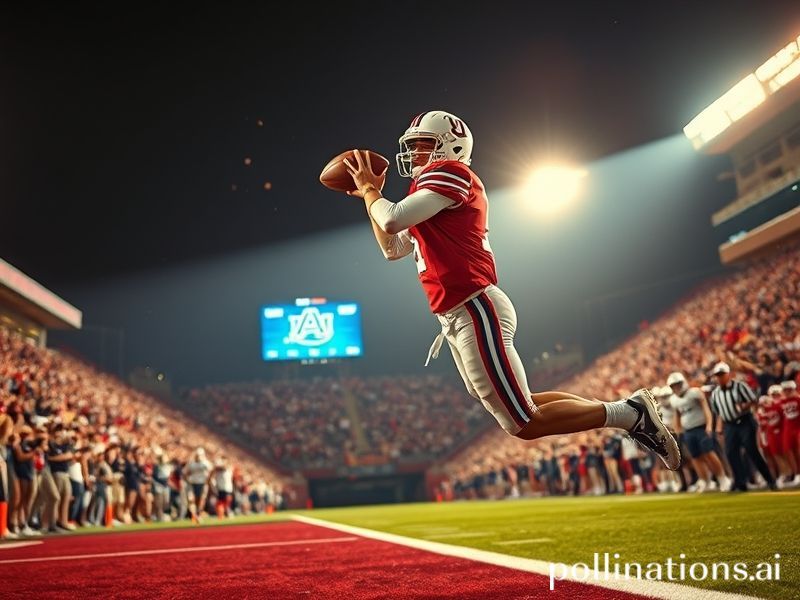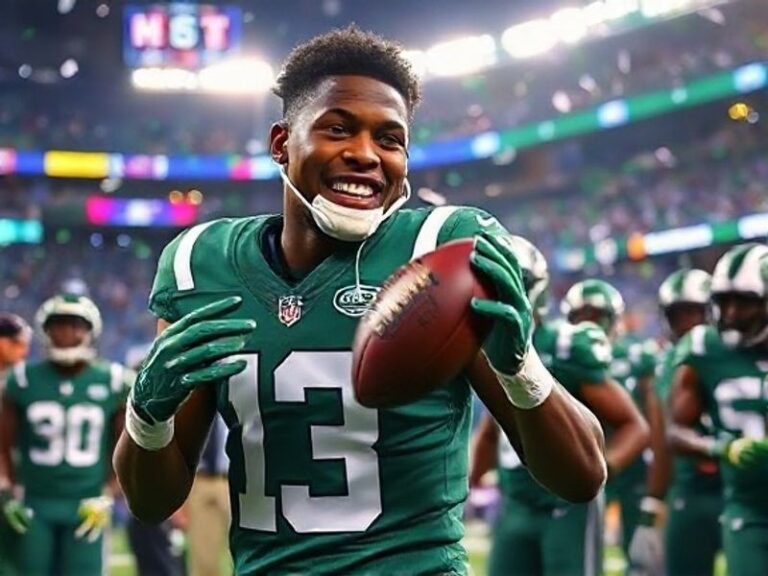South Alabama vs Auburn: How a College Football Game Explains the Entire Global Economy (Yes, Really)
South Alabama vs. Auburn: A Microscopic Proxy War in a World That’s Already Over
By the time the final whistle blows on Saturday night, roughly 87,000 Alabamians will have screamed themselves hoarse inside Jordan–Hare Stadium while another 25,000 will have discovered the existential terror of a half-empty Hancock Whitney Stadium in Mobile. To the rest of the planet—those portions currently on fire, underwater, or negotiating a third IMF bailout—the contest between South Alabama and Auburn is less a football game than a geopolitical Rorschach test: tiny dots of regional pride arranged into the shape of late-stage capitalism.
Let’s zoom out. In Brussels, Eurocrats wring manicured hands over Russian gas flows; in Beijing, factory bosses wonder whether TikTok will be banned before the next shipment of iPhones clears customs; in Lagos, commuters calculate how many liters of petrol equal one hour of generator time. Meanwhile, in the American Southeast, the most pressing crisis is whether the Tigers’ freshman placekicker can reliably split uprights from 42 yards. Somewhere, Voltaire is updating his résumé.
The international significance? Consider the money. Auburn’s athletics department, technically a nonprofit, generated $177 million last year—roughly the GDP of Micronesia, give or take a coconut harvest. South Alabama’s athletic budget is a comparatively modest $30 million, yet still outsizes the annual health expenditure of Sierra Leone. These figures aren’t merely obscene; they’re instructional. They remind us that while the World Bank debates debt restructuring, American universities have quietly perfected the art of laundering civic pride into revenue streams. Call it soft power with shoulder pads.
Foreign correspondents stationed in Washington often lament that U.S. politics is now indistinguishable from performance art. They should watch a third-quarter possession in the Sun Belt. Auburn’s boosters—oil men, defense contractors, and at least one Saudi prince who thinks “Roll Tide” is a type of sushi—treat every incomplete pass as a personal betrayal of free enterprise. Across the field, South Alabama’s donor base skews toward regional hospital administrators and the odd Biloxi casino mogul, all gambling that an upset will goose undergraduate applications from Jakarta. Both sides pretend the game is about school spirit; both know it’s about quarterly earnings calls.
And then there’s the merchandise. Auburn’s official Nike jersey is stitched in Vietnam, shipped through the Port of Los Angeles, and sold back to fans at a 600-percent markup—a supply chain so elegant it could headline Davos. South Alabama’s gear, meanwhile, is quietly manufactured in the same Cambodian factory that produced the last batch of UEFA scarves. Somewhere in Phnom Penh, a 19-year-old seamstress stitches “Jaguars” onto mesh polyester and wonders, not unreasonably, whether a jaguar is a type of tank.
What does the world learn from this spectacle? First, that the American talent for weaponizing nostalgia remains unrivaled. Every yellowing Bear Bryant photograph is a nostalgia IED, primed to detonate at the sight of a visiting fan in the wrong colors. Second, that nationalism comes in microclimates. An Auburn victory will be framed—by local talk radio, by SEC Network anchors, by the governor’s inevitable tweet—as a triumph for the entire state, population five million, roughly that of Ireland minus the guilt. A South Alabama upset will be rebranded overnight as a populist uprising, the gridiron equivalent of Brexit, but with better tailgates.
Finally, the game offers a masterclass in controlled chaos. While the planet debates carbon credits, these two fan bases will burn 50,000 pounds of propane to cook 10,000 pounds of meat, then argue on message boards about whether the resulting smoke violates EPA guidelines. The circularity is almost poetic: we torch the future to celebrate the past, then upload the highlight reel to the cloud, which is itself on fire.
When the clock hits zero, one set of boosters will toast victory with bourbon older than several nation-states; the other will drown its sorrows in the same. Either way, the international order will remain unmoved—unless, of course, the highlight package goes viral on WeChat. In that case, Xi Jinping might finally understand America: a country so rich it can afford to be this passionately silly.
And somewhere in the South China Sea, a container ship full of unsold “Auburn 2024 National Champions” T-shirts steams toward Mombasa, proof that hope, like polyester, never really dies.







